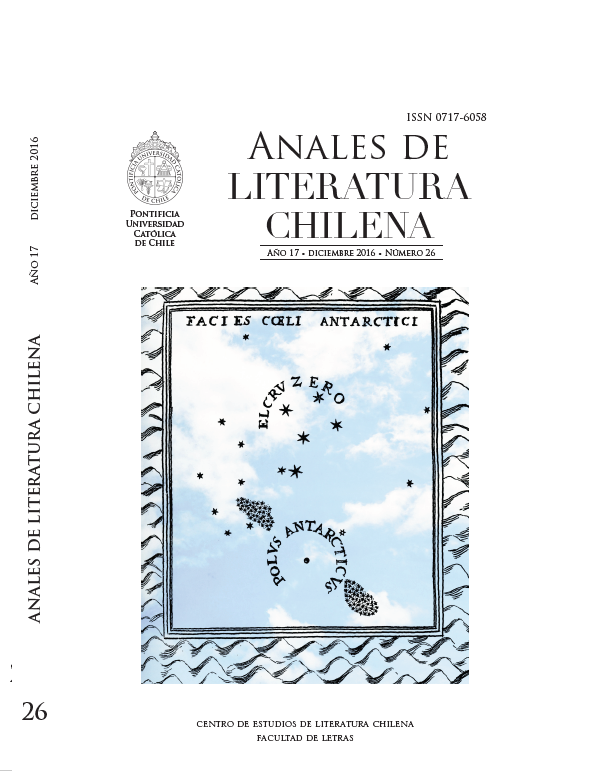Diego de Rosales's natural history: A baroque forerunner of the dispute of the new world
DOI:
https://doi.org/10.7764/ANALESLITCHI.26.07Keywords:
Diego de Rosales, Jesuits, Chile, natural history, Dispute of the New WorldAbstract
The Historia general del Reyno de Chile, Flandes Indiano (1673), by the Jesuit Diego de Rosales, is not just the most important historical work written in Chile during the seventeenth century. It is also the most complete natural history of Chile written until the late eighteenth century. In this essay, I explain the inclusion of such a detailed account of Chilean lora and fauna in a work mostly devoted to military and ecclesiastical history as a refutation of Juan de la Puente’s thesis on the inferiority of the Americas advanced in his Conveniencia de las dos monarquías (1612). Rosales’ detailed description of Chilean nature was tailored to prove that human beings found a perfect environment for their development in Chile. The
inferiority of the American people was negated by the physical prowess of the Mapuche, for whom Rosales theorized an origin in the pre-Christian Iberian people. It is through this polemic that Rosales anticipated, by almost a century, several of the arguments that the Jesuits would deploy in Europe against Raynal, Bufon, and De Paw during the so-called “Dispute of the New World.” This dispute, and the arguments put forth by the Jesuits, was instrumental for the emergence of a patriotic rhetoric among the Criollos.
Downloads
Downloads
Published
How to Cite
Issue
Section
License

This work is licensed under a Creative Commons Attribution-NoDerivatives 4.0 International License.


